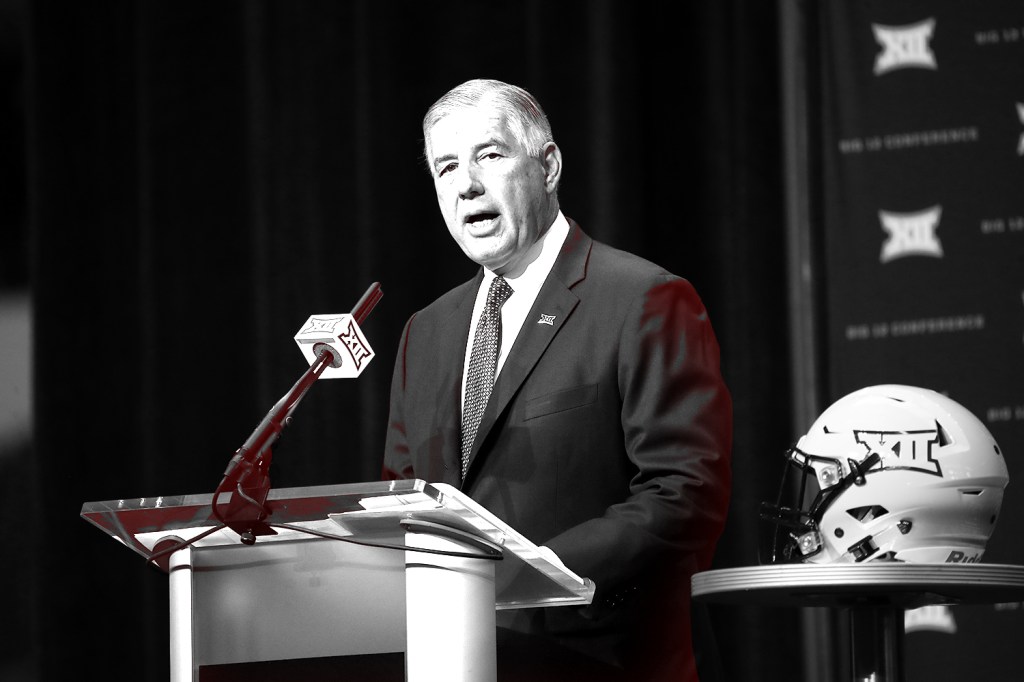When the University of Texas, Austin and the University of Oklahoma notified the Big 12 Conference that they wouldn’t be returning in 2025 — and applied to join the Southeastern Conference — reports suggested the defection could sink the Big 12 altogether.
In response, Big 12 Commissioner Bob Bowlsby launched an offensive using legal, political, and journalistic means.
He’s fighting to keep his job — and the Big 12 — intact.
Trouble In Paradise
On Wednesday, Bowlsby tried to stop alleged back-channel dealings between schools, ESPN, and other conferences that could unravel the Big 12.
In a cease-and-desist letter leaked to Yahoo Sports, Bowlsby accused media partner ESPN of trying to encourage the conference’s breakup by urging other members to defect to other conferences.
He then went on a media tour.
Bowlsby told USA Today that ESPN is conspiring to break up the Big 12 — because if it ceases to exist, Texas and Oklahoma could join the SEC more quickly. Then he told CBS that the AAC had tried to absorb the conference’s remaining members.
An ESPN spokesman denied the allegations, saying: “The claims in the letter have no merit.” During a Texas State Senate hearing, Texas President Jay Hartzell also denied that the school spoke with ESPN.
“There’s like, three or four levels of unprecedented surprise,” sports attorney and New York Law School professor Dan Lust told FOS.
What’s next? During the Texas Senate’s five-and-half-hour long hearing on “the future of college sports,” Bowlsby said he and ESPN had agreed to take their grievances behind closed doors. But he also claimed that Oklahoma and Texas have violated the conference’s bylaws in another way — by failing to notify the Big 12 of their conversations with the SEC quickly enough.
But Lust pointed out that Bowlsby has the “real likelihood of looking very hypocritical.” To save the Big 12, Bowlsby may have to engage in some back-channeling of his own to recruit other members or combine with another conference.
Bowlsby said the conference has already considered other options, though they have not formally reached out to any other schools yet. But lo and behold, Bowlsby met with Pac-12 Commissioner George Kliavkoff on Tuesday to discuss working together, according to The Athletic.
Political Posturing
On Monday, Bowlsby employed more than just media and legal threats to save his conference: He got patriotic.
Bowlsby appeared to ask the state legislature if allowing an SEC “super-conference” was worth losing our Olympic bragging rights.
“The greatest threat to the United States Olympic Movement is this sort of money grab,” he said.
Arizona State history professor Victoria Jackson recently explained this phenomenon: The revenue from football and men’s basketball funds collegiate olympic sports, and thus our olympic pipeline. So if one conference gobbles up all the football money, Bowlsby implied, those teams will be cut. The U.S. can kiss our medal haul goodbye.






